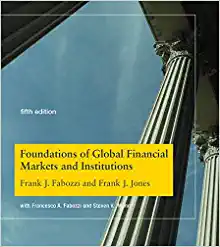Question
1. Minimum wage laws a. make it easier for low-skilled people to get jobs. b. make it harder for low-skilled people to get jobs c.
1. Minimum wage laws a. make it easier for low-skilled people to get jobs. b. make it harder for low-skilled people to get jobs c. give employers an incentive to hire more workers. d. make everyone better off.
2. The unintended consequences of minimum wage include a. higher wages. b. fewer job opportunities for teenagers. c. more jobs for unskilled workers. d. lower prices.
3. What do Denmark, Norway, Finland, Sweden and Switzerland have in common? a. Each of these countries has a higher minimum wage than the U.S. b. Each of these countries has a lower minimum wage than the U.S. c. Each of these countries automatically adjusts its minimum wage for inflation d. None of these countries has a minimum wage.
4. The minimum wage is a. the lowest wage employers may legally pay workers. b. the lowest wage at which workers may sell their labor. c. both lowest wage to pay workers and lowest wage workers can sell their labor. d. none of the above.
5. 25 cents in 1938 had the same buying power as $4.18 does today due to a. inflation. b. unemployment. c. the minimum wage. d. both unemployment and the minimum wage.
6. Inflation a. reduces the purchasing power of money. b. increases the purchasing power of money. c. does not affect the purchasing power of money. d. is caused by unemployment.
7. If minimum wage is increased, business owners are more likely to a. cut prices and hire more workers. b. keep prices the same and hire more workers. c. raise their prices and/or cut back on staff. d. hire more unskilled minority teenagers.
8. The 1938 Fair Labor Standard Act was passed in response to a. high unemployment. b. high inflation. c. high wages. d. high interest rates.
9. Minimum wage laws a. are the same everywhere. b. require that all jobs pay the same wage. c. are a win-win for everyone. d. vary from one country to another, and within the U.S
10. Shortly before the passage of the first U.S. minimum wage law, a. the black unemployment rate was higher than the white unemployment rate. b. the black unemployment rate was lower than the white unemployment rate. c. most African Americans could not get jobs. d. African Americans did not face as much discrimination as they do today.
Step by Step Solution
There are 3 Steps involved in it
Step: 1

Get Instant Access to Expert-Tailored Solutions
See step-by-step solutions with expert insights and AI powered tools for academic success
Step: 2

Step: 3

Ace Your Homework with AI
Get the answers you need in no time with our AI-driven, step-by-step assistance
Get Started


